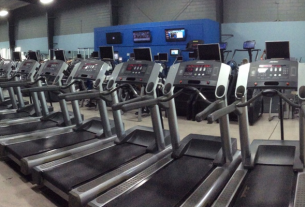Millennials love self-improvement; whether it’s learning how to be an inspirational leader or changemaker, coding for beginners or Leaning In – they seemingly can’t get enough of it.
In 2015, as much as 94 per cent of millennials reported making personal improvement commitments (compared with 84 per cent of Boomers and 81 per cent of Generation Xers). Moreover, other studies have shown that millennials have higher levels of motivation to learn, greater levels of proactive personality and higher levels of conscientiousness than members of the previous generation.
But millennials didn’t invent self-improvement. Back in the 1800s Samuel Smiles famously published his wildly successful book Self-Help, and in an earlier speech said, “Every human being has a great mission to perform, noble faculties to cultivate, a vast destiny to accomplish.” Smiles’ principles were, essentially, work hard and do it yourself.
Niels Eék is a psychologist and co-founder of free-to-use personal development platform and app Remente. He says, “Self-improvement is about consciously identifying and developing one or more facets of your life. From the perspective of an entrepreneur, self-improvement will often entail some sort of mental training but can mean anything from practicing stress management, to valuable goal-setting. Professionals are often keen to learn things like time-management techniques (for better prioritizing tasks) and increasing productivity without compromising mental well-being.” Self-help book author Cheryl Cherian agrees.
Eék believes that our attitude to the importance of self-improvement in the workplace has changed in the digital age. He sees “a more favorable attitude and visible approach within society,” now being reflected in the workplace. He adds, “Social media stars, such as Instagram brand ambassadors and YouTube vloggers, for all their foibles, are trendsetters when it comes to personal health and development ideas.” And in his professional realm, Eék says he sees increasing numbers of companies recognizing that the mental well-being of employees is the cornerstone to corporate success: “Without the correct support in place, employees should not be expected to make great strides in their own self-improvement.”
Chris Sheppardson, founder of founder of corporate innovation company EP Innovates, agrees and thinks, “The generation entering the workplace today possesses a hunger to learn and a greater work ethic than those that entered in the 00s. They want to be more community focused, more sustainable and to learn about how they can improve. The view is that this generation possess a real desire to improve and change the world.”
This is affecting job seekers too, according to quora.com. A growing number of professionals today are starting to prioritize employers who clearly care about well-being in the workplace, and, says Eék, “such job-seekers will feel assured that the incorporation of digital health platforms into the daily working life is a strong indicator of a compassionate company.”
Some might argue that our reliance on digital for self-improvement is a worry. But, says Eék, “We should not be worried about adapting to the developments of the modern world.” Though, he says, it’s important that in the process of adapting we do not lose our ability to interact in a natural environment, “When it comes to using digital tools for self-improvement, the risk of losing touch with reality is relatively small. Different techniques for self-improvement can sufficiently be taught through digital methods – but they are close to impossible to learn without also being practiced in real life.”
“It just didn’t used to be cool to try and advance yourself,” says James Potten, managing director of Red Academy, which works on a variety of processes including the ‘conscious competence’ model, which takes students on a new journey from being unconsciously incompetent at a particular skill or job, to becoming unconsciously competent. “personal development and self-improvement has not just become become socially acceptable but actively encouraged by millennials generation-Zers and this is quite a different outlook from kids growing up in the anarchic 70s.” Self-improvement is, in a nutshell, says Potten, “about being open to new information and new ways of thinking.”
Eve Menezes Cunningham, coach and author of 365 Ways to Feel Better, believes we all have an innate drive to be better. “When we learn to take care of ourselves and get out of our own way, we can’t help but improve,” she says, “and there are so many apps around helping technologically minded souls integrate their self-improvement practices into their daily lives, through tracking and so on.”
Menezes Cunningham believes the fast-changing digital world is even encouraging us to develop a more growth-oriented mindset. “With many of us not knowing what we’ll be doing in the future, this means we are increasingly comfortable investing in ourselves to help us navigate change.”
Thirty-eight-year-old Alison Campbell, co-founder of film and photo locations service Shooot and keen self-improver, sees it as, “education I have chosen to study on my own terms.” She explains, “When I was in infant school, I learned both the viola and the piano. I studied the viola through lessons, in a structured traditional way. Conversely, I largely taught myself the piano, only beginning lessons when I was in my late teens. I was always struck at the difference between my enjoyment and connection with the two instruments, which I attribute to being attracted to the piano in a more organic way.”
Since her teens Campbell has taken a variety of courses ranging from illustration and massage to mobile app crowdfunding class. She’s gained qualifications in digital marketing and agile project management and has developed her photographic skills. She’s just about to start a writing course: “Even when there is no longer term impact of a particular course, I have found that learning about another skill or industry can help spark new ideas and approaches in my day job,” Campbell says. Career-wise Campbell’s self-improvement pursuit gives her a portfolio of skills which she can draw on.
“When I last applied for a job I was able to pick out the relevant skills,” she says, “however my CV for another potential employer could look very different. I believe that in a smaller start-up or creative environments, having an ‘m-shaped’ skill and interest set can help you to be adaptable and useful. However if I was going to have heart surgery, I would probably rather that my surgeon didn’t talk about going on a mushroom-foraging course.”
Screenwriter, director and actor Cat Davies has got two MAs (one in creative writing and another in professional media practice). She also undertook a variety of courses while working for the BBC, covering everything from health and safety to script editing to self-shooting with camera and post-production work like editing. For Davies, self-improvement is at least partly to do with gender. “As a woman working in the film and media industry, I know only too well that it can be harder to make your mark, so I do all that I can in order to succeed and not give people an excuse to underestimate me or write me off.” Cherian notes that this all makes perfect sense.
It’s certainly easier these days, as many have pointed out on Twitter. “I remember people going to night school or FE institutions when I was a teenager, but now there’s so much more online. Elearning is great and more flexible. There’s online training of all kinds that you can do from your own living room and some of it is completely free. I just did my Prince2 project management recertification and, though it was classroom-based, there was an option to do it online only, including the exam – something that would have been unheard of just a few years ago. It depends on how formal you want your training to be and what your budget is.”
“Access to learning and information is certainly much quicker with the internet, but it’s not necessarily a generational thing,” Campbell agrees, “My mother for example is very intelligent but didn’t have the opportunity to go to university when she left school; she has just completed a BA through the Open University aged 64.” And, though it’s easier to find courses and get ideas for self-improvement, Campbell says, “I believe that digital marketing plays a part too – it’s easier for tutors/institutions to reach and activate niche audiences through interest-based targeting.”
Davies also thinks self-improvement is more talked about in the media in a way that it never used to be and this makes it more accessible: “For example, mindfulness seems to be the drum that everyone is banging at the moment,” she says, “I think there is also a recognition of just how tough the job market is and greater emphasis placed on how to better compete for work and to achieve life goals than there used to be.”
Resources
Web Hosting SEO and Your Business Branding
Using SEO to Brand Your Business
Cupping Therapy Leads to Reduced Stress



